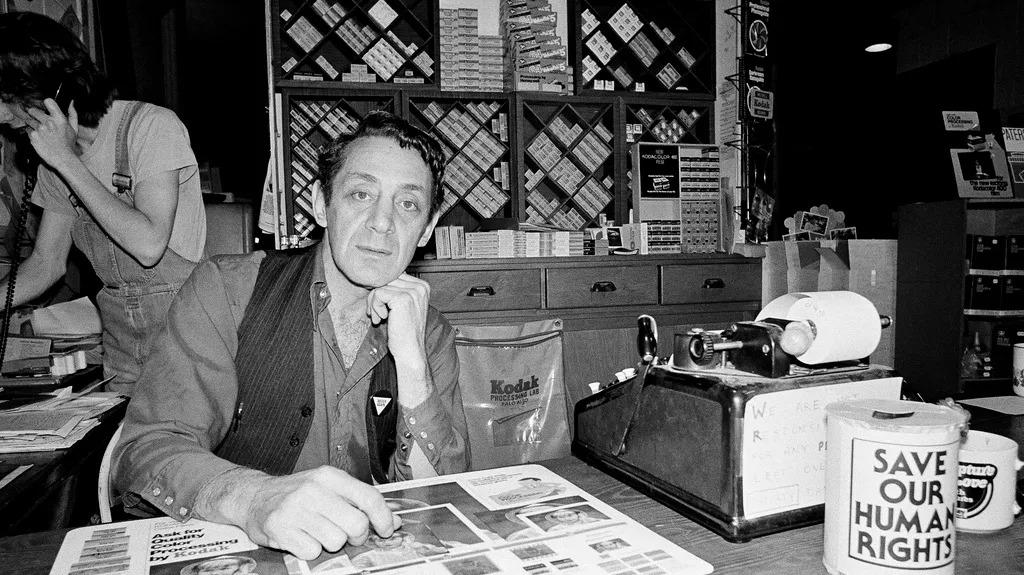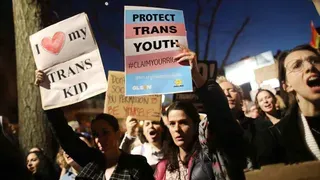September 8, 2012
Ruth Ellis Center Protects Gay Youth with End the Chill Project
Winnie McCroy READ TIME: 5 MIN.
Thinking of the approaching winter filled Laura Hughes with sorrow, as she envisioned the LGBT homeless youth shivering in Detroit flophouses and squats. So with the help of comedian Wanda Sykes, Hughes and her team at the Ruth Ellis Center launched a major fundraiser and awareness campaign, "End the Chill: Where Homeless Youth Sleep This Winter." In order to allow them to stay open an additional 11 days per month during the winter, they hope to raise $20,000 between now and September 20, when Sykes will headline their annual benefit.
"In Michigan, the winters are harsh. We are coming to that part of the season, and want to be additional days during winter as warming station," said Hughes, executive director of the Ruth Ellis Center, a facility opened in 1999 to provide gay youth with a safe space, food, showers, mental health services and community. Her team calculated that in order to stay open an additional 11 days per month to provide these services, they would need to raise $20,000.
They started a fundraising campaign via indiegogo, on which homeless kids could post pictures of the placed where they crash, so that people across the nation would see their stories and be moved to donate.
"Young people are at the forefront of all decisions we make, from the paint on the walls to what we serve for dinner to the projects we do," said Hughes. "We know they have powerful voices, and being at the intersection of race, gender and poverty allows them a unique perspective of what happens in the community and center, and what needs to happen."
The project hit some snags initially, as Hughes and her cohorts realized that the problem of homeless youth was an invisible one. They work hard not to be seen, in order to avoid being taken back to their home, or to juvenile justice. Even at the drop-in center, workers know that when kids say they are staying with friends, they won't say that they are staying with seven friends in a burned-out house on Arizona Street, unless you ask. Many youths did not want to be photographed in the spaces they lived in; others, who had moved on to more stable housing, were willing to take show Hughes where they used to stay, or where friends slept. It was these same stories that moved Sykes to support their campaign.
"My first visit to the Ruth Ellis Center was one year ago, when I spent time with the youth at the Second Stories Drop-in Center," said Sykes. "I was moved by the youth's stories and strength, and impressed by the work the Ruth Ellis Center conducts to help improve their outcomes. It's exciting to have another opportunity to visit Detroit, spend time with the youth and continue supporting the Ruth Ellis Center at Voices."
On September 20 at the Museum of Contemporary Art Detroit, Sykes will host their benefit, Voices. She will announced the results of the End the Chill campaign, and present the Ruth's Angels Awards to two founding and current board members, clinical psychologist Dr. Kofi Adoma and John Allen, a partner at Allen Brothers PLLC Law Firm.
Hughes said that there were an estimated 800 homeless gay youth in Detroit, part of the $680,000 runaway and homeless youth across the nation who self-identify as LGBT. The National Runaway Switchboard estimates that gay youth are seven times more likely to be a victim of crime than their straight peers. And in Michigan, nearly nine out of 10 gay students experience verbal harassment, five out of 10 experienced physical harassment, and one in five experienced physical assault because of their sexual orientation.
Although some of these kids flock to Detroit after their parents kick them out for disclosing their sexual orientation, Hughes said the majority of kids they serve come from Highland Park, where the shelter is located.
And although there are three other agencies that the Ruth Ellis Center refers gay youth to, Hughes admitted that there were just not enough beds in the city of Detroit or the state of Michigan when the winter winds find every shelter filled to capacity. And the reality is that these kids are still not having good experiences when they stay at other places.
Providing stable housing can be life or death for these youth, said Hughes. She cited statistics that show that the rates of HIV infections among African-American men who have sex with men in Detroit more than doubled between 2006-2010. About 40 percent self-identify as HIV-positive, and that does not account for those who don't know their status.
"Once you provide stable housing, many of the risks they had to take that put them at risks disappear," said Hughes. "Ninety percent report having survival sex for food or housing. Homelessness and HIV are so intertwined, you can't address one without the other."
Even if they meet their fundraising goal, Hughes admitted that the bleak economic outlook could not ensure housing for all the LGBT homeless youth that need it. But she challenged the larger gay community to recognize that these are our LGBT youth, and we need to ensure that they have a safety net and opportunities to grow.
"I always borrow from Carl Siciliano of the Ali Forney Center, who says that LGBT youth homelessness is the greatest example of homophobia in the nation," said Hughes. "It's our community's responsibility to realize that the LGBT equality movement doesn't just mean marriage. Young children are showing up on our doorstep in slippers. Are we comfortable saying that we sacrificed our children so that we can be married?"
For more info or to donate, visit www.indiegogo.com/EndTheChill, or https://www.facebook.com/RuthEllisCenter
Winnie McCroy is the Women on the EDGE Editor, HIV/Health Editor, and Assistant Entertainment Editor for EDGE Media Network, handling all women's news, HIV health stories and theater reviews throughout the U.S. She has contributed to other publications, including The Village Voice, Gay City News, Chelsea Now and The Advocate, and lives in Brooklyn, New York.






